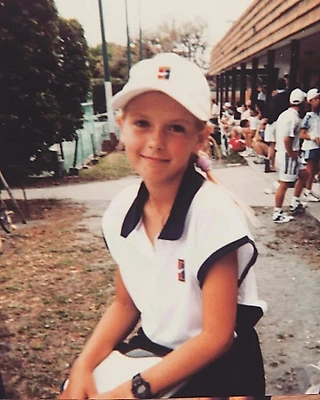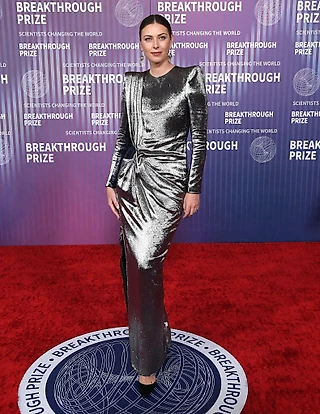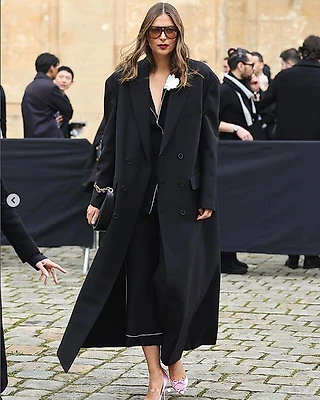Is Maria Sharapova still a box office draw for sponsors?
By Bill Wilson
Business reporter, BBC News
2 hours ago
From the section Business
Image copyright Getty Images
Image caption "The player's kit suppliers Head and Nike have stood by her"
Maria Sharapova faces the biggest challenge of her tennis career - namely her return to the sport after a 15-month drugs ban - and it is not just her continued sporting success that is in the spotlight.
Off the court, where she makes the bulk of her earnings, the question is - can she be as big a sponsor draw as she was before her enforced absence?
The 29-year-old will return to action on Wednesday, 26 April, in Stuttgart after being handed a wildcard.
Although some fellow players have expressed misgivings, she has the support of the WTA tour, and her fans.
And, with biggest commercial rival Serena Williams announcing she is pregnant and facing time away from the game, the Russian's return is certainly timely.
In the year from June 2015, Forbes estimates the five-time Grand Slam winner made $1.9m (£1.5m) in prize money from playing, but a whopping $20m from endorsements, a sum matched only by Williams.
And it is this primary source of earnings that Sharapova will be looking to reinvigorate.
Image copyright Getty Images
Image caption "Sharapova has participated in Evian promotional events during her ban"
"During her time out there will have been some continued relationship with her sponsors," says Simon Chadwick, professor of sports enterprise at the University of Salford.
"But I am sure there will have been some sort of penalty clause in her sponsor contracts for incurring a suspension."
'Dangerous'
Following Sharapova's admission in March 2016 that she had tested positive for a banned drug at that year's Australian Open, she was initially banned by the International Tennis Federation for two years, later reduced on appeal.
But unlike golfer Tiger Woods, who haemorrhaged sponsors very quickly after his extra-marital affairs came to light, Sharapova's backers waited to see how things played out.
"That was because they had invested so much money and effort into their deals," says Prof Chadwick.
"Also, to terminate deals could have been dangerous as she might come back successfully, and if you as a sponsor have decided to cancel her contract then the door has been left wide open for a rival."
Image copyright Getty Images
Image caption "Sharapova's deal with Tag Heuer was not extended"
As it was the sponsor reaction was mixed - Head and Evian were immediately supportive, Nike and Porsche put their relationships on hold but later came back on board, while Tag Heuer and Avon chose not to extend deals that had ended.
Given the large amounts of money and time invested - Nike's relationship with the player dates back to when she was 11 years old - it is not surprising the major brands wanted to think hard before reaching their decisions.
'Brand Sharapova'
"In terms of brands and reputation, what all this has highlighted is that first of all Sharapova is a major brand in her own right," says Karen Earl, chairman of the European Sponsorship Association.
"She commands a lot of media attention, as the furore about her comeback demonstrates. It also highlights that she is a huge star, and that women's tennis feels it needs her.
"That is one of the reasons why brands want to continue to associate with her. Those that stuck with her value the association of her brand with their brands."
Image copyright Alamy
Image caption "The player's extensive fan base has remained loyal"
Mrs Earl says the fact that Sharapova immediately put her hand up and admitted the drugs breach helped mitigate the damage to her brand, and those of her partners.
"Sharapova admitted she had done a wrong thing.
"She has gone out of her way to recognise what she has done and has handled that situation in a credible way. She has been contrite and said it will not happen again," says Mrs Earl.
"The fact there hasn't been a public outcry against her return will have reassured brands to stick with her.
"If there had been protests from tennis fans, then that might have influenced her sponsors' decisions."
'Heroes needed'
Prof Chadwick says Sharapova's management and advisers, those who look after her profile, grabbed hold of a difficult situation very quickly.
He believes the Russian is now pushing at an open door with regards to her return to the sport, with WTA boss Steve Simon quoted as saying: "I believe that the game, the fans, the tour... everybody is going to welcome Maria back."
Even before Serena Williams' pregnancy announcement, Prof Chadwick says that the sport was struggling to find an heir apparent at the top of the women's game.
"There is not a great deal of highest-quality talent following on behind," he says.
"Nobody seems to be able to string together a consistent run of results. Women's tennis needs all the help it can get in terms of heroes, big names, elite talent to attract fans to the sport.
"As a constellation of female tennis player brands, the sport has been somewhat diminished by Sharapova's absence."
Image copyright Alamy
Image caption "The Russian took part in an exhibition match with Monica Puig in Puerto Rico in December 2016"
Mrs Earl points out that while many players have not taken too kindly to Sharapova's return, for her sponsors the important thing is the welcome she will receive from her fans, who are potential purchasers of their products.
"The sponsors are not endorsing her because she has been the most successful player, it is because of what she brings off the court," she says.
"Her persona and brand are what is most important. She knows how to market herself. She is commercially astute.
"To her credit, even after her time away, she is still probably the most marketable female tennis player."
http://www.bbc.com/news/business-39512639
>













